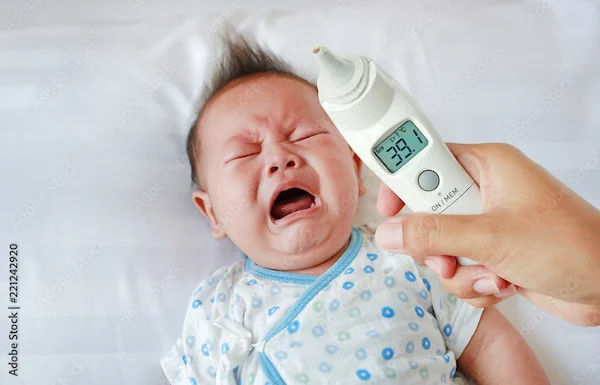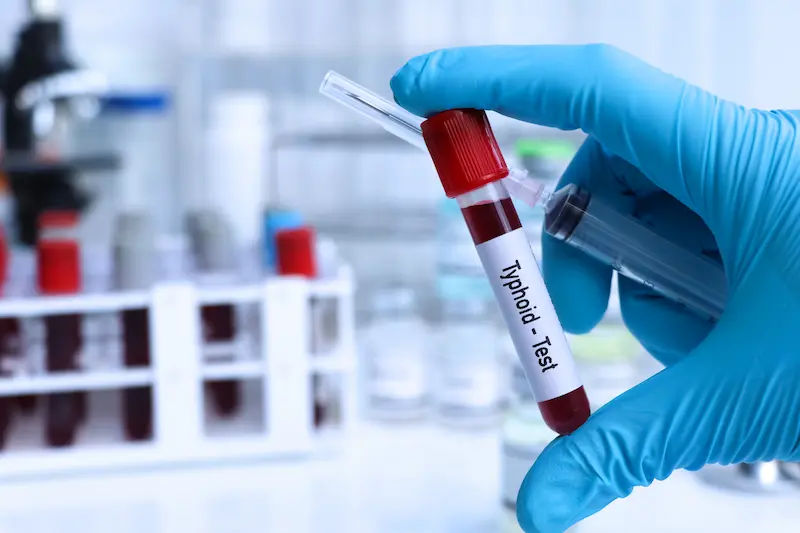Effective Pyrexia Treatment: Managing Fever and Its Underlying Causes
Discover effective pyrexia treatment options to reduce fever and manage symptoms. Learn causes, remedies, and when to seek medical care for quick relief.

Written by Dr Shreya Sarkar
Last updated on 13th Jan, 2026
An abnormal elevation of body temperature above 37.5°C (99.5°F) is termed pyrexia. It is a physiological response triggered by the immune system in response to infection or inflammation. In this condition, the elevated temperature enhances the body's ability to combat pathogens more efficiently.
Fever, or pyrexia, acts as a defence mechanism and is a symptom, not a disease. Keep reading to understand its causes, symptoms, and treatment strategies.
Symptoms and Signs of Pyrexia
Pyrexia symptoms vary in intensity and may help identify the cause. General symptoms of this condition include:
- Elevated body temperature
- Chills and shivering
- Sweating
- Fatigue and weakness
- Loss of appetite
The following signs of pyrexia indicate a more serious condition and require urgent medical care:
- Fever that lasts for more than 8 days with a temperature greater than 40°C (104°F)
- Severe headache
- Skin rash
- Mental confusion or altered mental state
- Breathing troubles
- Chest pain
- Persistent vomiting
Diagnosis of Pyrexia
Effective management of pyrexia and its underlying causes is reliant on an accurate diagnosis. Assessment of the patient’s febrile state requires interpreting the febrile pattern, medical history, travel history, and family illness.
Common diagnostic tools include:
- Complete Blood Count (CBC): Detects infections or anaemia
- Differential Cell Count: Identifies white blood cell abnormalities
- Blood Cultures: Identifies bacterial, viral, or other pathogens
- Imaging Studies: Detects internal infections with x-rays or ultrasounds
- Condition-Specific Tests: Designed for specific illnesses like malaria, dengue, and tuberculosis
- C-Reactive Protein (CRP) Test: Detects inflammation in the body
- Erythrocyte Sedimentation Rate (ESR): Identifies inflammatory conditions
- Liver Function Tests: Measure and detect potential liver problems
- Renal Electrolyte Tests: Evaluate kidney function and any related abnormalities
Get Your Health Assessed
General Management of Pyrexia
- Pyrexia is managed with approaches to relieve the symptoms and minimise the underlying process.
- Rest allows the body to expend less energy on activities other than immune responses.
- Dehydration caused due to excessive sweating can be prevented by drinking water, oral rehydration solutions, or electrolyte-rich fluids.
- Commonly prescribed antipyretics, such as acetaminophen (Tylenol) or ibuprofen (Motrin), reduce fever.
- In addition to prescribed doses, complementary non-pharmacological measures include hydration, avoidance of stimulants, and the thermal application of tepid water to mitigate potential adverse effects.
Treating the Underlying Cause of Pyrexia
When the cause is a viral or bacterial infection, pyrexia is treated with antiviral and antibacterial treatments. The type of treatment depends on the fever’s cause.
- Antiviral drugs are prescribed for viral infections such as influenza. Some antiviral drugs can decrease the severity and length of symptoms.
- Lamivudine is a prescription drug for hepatitis B virus (HBV) and human immunodeficiency virus type-1 (HIV-1).
- Antibiotics are prescribed to treat urinary tract infections caused by bacteria. The type of bacteria determines which antibiotic is prescribed.
- Corticosteroids or immunosuppressive drugs are recommended for fevers due to autoimmune and inflammatory disorders.
- Sometimes, targeted therapies or chemotherapy is required when the patient already has a malignancy.
Non-Pharmacological Approaches to Pyrexia
The following measures, in addition to medical interventions, help to manage pyrexia.
- Lukewarm sponge baths
- Cool compresses applied to the forehead
- Adequate ventilation and light clothing
- Nutrient-rich foods like broths, fruits, and vegetables are consumed to keep the immune system active. Avoiding spicy or greasy foods can reduce gastrointestinal discomfort.
Complications of Untreated Pyrexia
Severe and life-threatening complications arise from untreated pyrexia (fever), including neurological, systemic, and physiological damage. These complications include the following:
- Brain Damage: Permanent neurological damage can arise from elevated body temperatures. The damage can result in cognitive impairments such as memory loss and learning disabilities. Other symptoms of brain damage include confusion, disorientation, and hallucinations.
- Seizures: Febrile seizures are more common in children under five years of age with frequent, high fevers. Unattended pyrexia can also result in seizures in adults as a sequel.
- Death: Untreated, high fevers can last for days and even weeks and may result in coma and death eventually. Fatal fevers are those above 107.6°F and require immediate medical attention.
- Organ Damage: Explosively increased body temperatures can cause irreparable harm to critical organs.
- Dehydration and Electrolyte Imbalance: Excessive fluid loss usually occurs due to overheating of the body and leads to dehydration and disturbances of electrolyte levels, which may aggravate systemic complications.
Immediate medical attention is required if:
- The condition has not fitfully resolved with the relief associated with a noninfectious illness lasting less than three days
- Treatment doesn't help the symptoms get better
- Severe infection or organ dysfunction are signs
Prevention of Pyrexia
Simple lifestyle changes and maintaining proper hygiene are fundamental in preventing infections that may lead to pyrexia. Here are some precautions:
- Regular hand washing reduces the risk of infections significantly.
- Maintaining a balanced diet and engaging in regular exercise are essential for strengthening immunity and promoting overall resilience.
- Avoiding excessive exposure to heat or sunlight helps prevent heat-related fevers and associated health risks.
Immunisations and routine health evaluations are critical components of a comprehensive prevention strategy for pyrexia. Here are the strategies: - Preventable diseases such as influenza and typhoid can be avoided through timely vaccinations.
Routine health screenings play a crucial role in detecting and addressing potential health concerns at an early stage.
Prognosis and Recovery
Most cases of pyrexia recover with appropriate treatment and no lasting consequences. Recovery time depends on the underlying cause. Viral fevers usually resolve in 3 to 7 days. The effectiveness of treatment for bacterial infections depends on the time needed for recovery.
Timely medical intervention and prognosis are crucial in determining the severity and recovery outcomes of pyrexia. These are also dependent on:
- Age and overall health of the individual
- Timeliness, as well as appropriateness of treatment
- Underlying medical conditions
Conclusion
Pyrexia, a common medical condition, signals an underlying issue. Effective management targets both the fever and its cause using medical and non-pharmacological approaches. Prompt diagnosis and treatment are essential to prevent complications and ensure recovery. Persistent or worsening symptoms require immediate medical attention.
Preventive measures like maintaining hygiene, staying hydrated, and keeping up with vaccinations can significantly reduce pyrexia. Prioritising health ensures the absence of fever and related complications.
Consult Top General Physicians
Consult Top General Physicians

Dr. Jawwad Mohammed Kaleem
General Practitioner
4 Years • MBBS
Hyderabad
Apollo 24|7 Clinic, Hyderabad

Dr. Mohammed Kamran
General Practitioner
5 Years • MBBS, FIDM
Nashik
Apollo 24|7 Clinic - Maharashtra, Nashik

Dr. Swarna Deepak K
General Physician/ Internal Medicine Specialist
20 Years • MBBS: MD (Internal Medicine) MRCP (UK), EDIC (European Diploma in Critical Care), IDCCM, IFCCM (Critical Care), FID (Royal Liverpool Academy)
Hyderabad
Apollo Hospitals Jubilee Hills, Hyderabad
(425+ Patients)

Dr. Sudhashree R
General Physician/ Internal Medicine Specialist
13 Years • MBBS, MRCEM
Bengaluru
Apollo Clinic, JP nagar, Bengaluru

Dr. Vivek D
General Physician
4 Years • MBBS
Bengaluru
PRESTIGE SHANTHINIKETAN - SOCIETY CLINIC, Bengaluru


.webp)

